 President
President
Dr. Joykrushna JENA
Deputy Director General (Fisheries Science)
Indian Council of Agricultural Research
Fisheries Science Division
Room No.309,Krishi anusandhan Bhavan-11, New Delhi-110012.
Dr J. K. Jena, with 25 years of research experience in different fields of freshwater aquaculture and conservation genetics, at present is holding the position of Deputy Director General (Fisheries Science) at the Indian Council of Agricultural Research, India. Prior to this, he served as the Director of the ICAR-National Bureau of Fish Genetic Resources, Lucknow, India for over five years.
Working in different aspects of freshwater aquaculture at the ICAR-Central Institute of Freshwater Aquaculture, Bhubaneswar, India during his initial career in different capacities, including as National Fellow and Head of the Division, Dr. Jena has contributed to the development of several technologies and research findings, including breeding, seed production and farming of diversified carp species; multiple cropping of carps; intensive carp culture; treatment of domestic sewage through aquaculture; cryopreservation of fish milt; and applied nutrition. He has operated over 20 research projects, including 10 externally-funded projects as Principal Investigator. As National Coordinator, presently he is operating the National Aquatic Animal Disease Surveillance Programme in India with involvement of 25 partner organizations.
Dr. Jena has published over 150 research papers in national and international journals, besides publication of 5 books, 20 book chapters, 7 review papers, 60 popular articles and over 150 Research Abstracts. He has been conferred with several awards and recognition, including Rafi Ahmad Kidwai Award of ICAR; ICAR Award for the Team Research; Special One-time Award by ICAR; Prof. H.P.C. Shetty Award for Excellence in Fisheries Research by AFSIB; Pillay Aquaculture Award of the Pillay Aquaculture Foundation and several others. He has also been conferred with several Fellowships by different Scientific Societies including Fellowship of National Academy of Agricultural Sciences, India. Presently he holds the position of the President of the Asian Fisheries Society and also the Chairman of the Asian Fisheries Society Indian Branch. He has also served as the Member or Expert member of different national level committees.
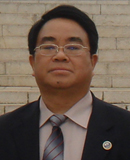 Immediate Past-President
Immediate Past-President
Prof. Shuolin HUANG
Shanghai Ocean University
999 Hucheng Huan Road
Shanghai 201306,4
P.R.CHINA
Professor Huang Shuolin received his B.Sc in Engineering from Shanghai Fisheries College in 1982 and M.Sc in Economic from the London School of Economic and Political Science (LSE), University of London, United Kingdom in 1987. His research interests are fisheries policy, fisheries legislation, fisheries management, and international law of fisheries and the law of the sea. He was a visiting research investigator in the Research Center For International Law, University of Cambridge, UK from September 1994 to April 1995 and was a visiting research fellow in the School of International Development, Nagoya University, Japan from September 1998 to April 1999, where he gained advanced knowledge in the international law of the sea and international law of fisheries. He has more than 30 years of teaching and research experience in marine fishing and fisheries management. He was a lecturer/associate professor at Shanghai Fisheries University before 1996 and a professor since 1996. Now, he is vice president of China Society of Fisheries and vice president of Shanghai Ocean University. He is editor in Chief of Journal of Fisheries of China.
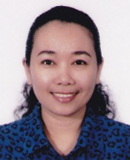 Vice President
Vice President
Dr. Alice Joan FERRER
University of the Philippines Visayas
General Luna St.,
5000, Iloilo City,
PHILIPPINES
Alice Joan G. Ferrer is a Professor of Economics at the University of the Philippines Visayas (UPV). She completed her BA Economics-Psychology at UPVs and her Masters and PhD in Economics from the School of Economics, University of the Philippines. Presently, she is the also the National Deputy Director of the Economy and Environment Group Philippines, and the Executive Director of the Western Visayas Health Research and Development Consortium of the Department of Science and Technology -Philippine Council for Health Research and Development. She served as Vice-Chancellor for Planning and Development of UPV in 2008-2011.
Dr. Ferrer has been involved in local and international research projects. Her research work has covered many areas including fisheries management particularly of the Visayan Sea, reverting disused fishponds to mangrove forest, governability of a protected area, health status of potentially-exposed population to oil spill, identifying and monitoring certain populations with health risk, health insurance, livelihood of small scale fishers, and more. Currently, she is involved in projects on mariculture in the country, health policies and development, urban health, and health support systems. She is also currently involved in international projects dealing with middlemen and sustainable small-scale fisheries, coastal area capability enhancement, marine protected area and livelihood of small-scale fishers, and in Too Big To Ignore Project (Global Partnership for Small Scale Fisheries Research).
Dr. Ferrer has published journal articles, a book, and has written chapters in books. She co-edited the book entitled Marine and Coastal Ecosystem Valuation, Institutions, and Policy in Southeast Asia with Dr. Nancy Olewiler of Simon Fraser University and Dr. Herminia A. Francisco, director of Economy and Environment Program for Southeast Asia.
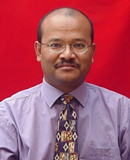 Treasurer
Treasurer
Prof. Aziz ARSHAD
Department of Aquaculture
Faculty of Agriculture
Universiti Putra Malaysia
43400 UPM, Serdang
Selangor, MALAYSIA
Prof. Aziz Arshad is currently a Director of the Centre of Marine Science, Universiti Putra Malaysia (UPM), Malaysia and a senior professor at the Department of Aquaculture, UPM. He first graduated with Bachelor degree in fisheries in 1983 at UPM and obtained his PhD in 1999 from University of Plymouth, United Kingdom. Presently, he is an honorary treasurer of the Asian Fisheries Society (2016-2019) and held the same treasurer post for the past two council terms. . He has served as the treasurer and secretary of the Malaysian Fisheries Society before his present engagement with AFS.
His research interest is in the field of fisheries biology and his past and on-going research focus on the study on biology and ecology of fish and invertebrates with specific interest on the reproductive biology and feeding ecology of selected commercial species. To date, he has published more than 200 refereed journal papers and worked on more than 30 research projects of various aspects of fisheries biology. He has graduated eleven PhD and five Master students throughout his 33 years career with UPM. Internationally, he is the national program leader for Malaysia under the 3-year collaborative program JSPS-ASEAN on living marine coastal resources and pollution.
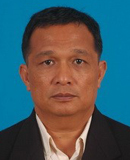 Secretary
Secretary
Prof. Dr. Abol MUNAFI
Faculty of Fisheries and Aqua-Industry
Universiti Malaysia Terengganu
21030 Kuala Terengganu, Terengganu
MALAYSIA
Prof. Dr. Abol Munafi Ambok Bolong is currently the Dean of the Faculty of Fisheries and Aqua-Industry at Universiti Malaysia Terengganu. He holds a Bachelor of Fisheries Science from Universiti Pertanian Malaysia in 1987. He completed his Master of Science in Aquaculture at Kochi University, Japan and obtained his PhD in Mariculture from United Graduate School, Ehime University, Japan in 1994. He has joined Universiti Putra Malaysia in 1994 before joining Universiti Malaysia Terengganu in year 2000. His expertise’s are in fish reproduction and responsible in teaching fish reproduction techniques, ornamental fish culture and live feed culture. His current projects are concerned with the application of nutritional biotechnology in broodstock development of Malaysian Mahseer (Tor tambroides) in captivity, as well as conservation of Terubok (Tenualosa toli) in Sarawak, Malaysia. Furthermore, he also involve on the broodstock and larvae management project for Malaysian Arowana and marine ornamental fish.
To date, a number of 9 PhD and 31 Masters students have succesfully graduated under his supervision. He is also actively appointed by several universities as an External Examiner for Masters and PhD theses. Following to that, several prestigious grants has been awarded due to his excellent achievement in the field of aquaculture, particularly involved in the nutritional and breeding technology of crustacean and fish. Most of his research have been published widely in international journals, book chapters, monographs, and proceedings. His involvement in the societies as well as his active collaboration with many universities and industries have made him one of the keyperson in the niche of aquaculture in Malaysia.
The Council Members
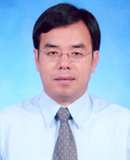 Dr. Sirawut KLINBUNGA
Dr. Sirawut KLINBUNGA
National Center for Genetic Engineering and Biotechnology NSTDA
113 Paholyothin Rd. Klong 1
Klong Luang,
Pathumthani 12120
THAILAND
Dr. Sirawut Klinbunga is a Director of Agricultural Biotechnology Research Unit, National Center for Genetic Engineering and Biotechnology (BIOTEC), National Science and Technology Development Agency (NSTDA), Thailand. He graduated a PhD degree from the University of Stirling, UK in 1996 and have joined NSTDA as a researcher since September 1996 until present. Currently, Dr. Klinbunga is a reviewer of more than 30 international journals and one of the editorial broad members of Developmental and Comparative Immunology (DCI). He has published more than 85 peer-reviewed papers in international journals and received several research awards for examples, Outstanding Technologist Award from Foundation for the Promotion of Science and Technology under the Patronage of His Majesty the King in 2003, Alumni Achievement Award from Burapha University, Thailand in 2003 and Taguchi Prize for Outstanding Scientist in the Field of Biotechnology from Thai Society of Biotechnology (TSB) in 2004.
His research interests are development of molecular biomarkers to improve the culture and management efficiency of economically important marine species including shrimp, oysters, abalone, crabs and sardines. Presently, he has extended the research on genomics, transcriptomics and proteomics for better understanding on molecular mechanisms of ovarian development in the giant tiger shrimp (Penaeus mondon). Since October 2010, he was appointed as the first Director of Agricultural Biotechnology Research Unit, BIOTEC and elected to be a councilor of the Asian Fisheries Society (AFS) in 2011. Dr. Klinbunga would like to share his experience to apply aquacultural biotechnology for improving better knowledge of this field in the region.
 Prof. Atsushi HAGIWARA
Prof. Atsushi HAGIWARA
Laboratory of Aquaculture Biology
Institute of Fisheries Science
Graduate School of Fisheries Science and Environmental Studies
Nagasaki University
Bunkyo 1-14, Nagasaki 852-8521
JAPAN
Professor Atsushi Hagiwara received his doctoral degree in 1986 from The University of Tokyo, and conducted postdoctoral research in Finfish Program at the Oceanic Institute, Hawaii. He joined the faculty at the Nagasaki University in 1988, and is currently the Dean of the Graduate School of Fisheries and Environmental Sciences. He also serves as a Director of Japanese Fisheries Society, as a Councilor of Japanese Society of Aquaculture Research, as a member of Science Council of Japan, as a member of The Agricultural Academy of Japan, and as an Adviser of the Aquaculture Network (NPO, Japan). Professor Hagiwara's past experience includes having served as a President of Japanese Society for Aquaculture Research (2012-2015), a Program Officer of the Research Center for Science Systems at the Japan Society for the Promotion of Science (2010-2012). His research interests include; ecology and physiology of zooplankton, behavioral zoology, larviculture of marine fish, and aquatic toxicology. His laboratory team is currently investigating the behavioral, physiological and molecular responses of rotifers, Artemia, cladocerans, copepods and fish larvae to environmental factors including anthropogenic stress. He has been active to build an international research network, as well as with regional technology transfer both in Japan and abroad. He has published over 180 scholarly articles and book chapters, and has edited a book Live Food in Aquaculture, published by Springer. He was awarded The Japanese Society of Fisheries Science Award in 2016.
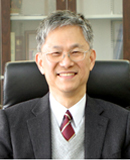 Prof. Chen-Huei HUANG
Prof. Chen-Huei HUANG
National Chiayi University,
Department of Aquatic Biosciences,
300 University Road
Chiayi TAIWAN.
Professor Chen-Huei Huang is with the Department of Aquatic Biosciences, National Chiayi University (NCYU), Taiwan. He received his Ph.D. in Food Science (biomembrane lipid oxidation in Atlantic cod) from the University of Massachusetts-Amherst (UMass) in 1991, M.S. (medicated diet for American lobster) in Animal & Veterinary Sciences from the University of Maine-Orono in 1986, and B.S. in Animal Husbandry from National Taiwan University in 1980. Following his postdoctoral training at the UMass Marine Station, he returned to NCYU and has been a faculty member specializing in Aquatic Animal Nutrition since 1992. During 2002 and 2006-2007, he was a visiting scientist conducting sabbatical projects on growth hormone transgenic coho salmon and rock fish nutrition at the West Vancouver Laboratory of the Department of Fisheries and Oceans, Canada. He was a member of the 11th AFS Council and currently a member of the Editorial Boards of the Asian Fisheries Science Journal and the Journal of the Fisheries Society of Taiwan. In addition to his academic duties, he has served as the Head of the Aquaculture Department from 1993 to 1999; and the Dean of College of Life Sciences at NCYU from 2010 to 2013. In honour of his contributions in research, teaching, and extension services, he was awarded the Distinguished Professorship by NCYU in 2011.
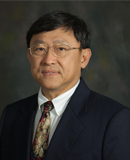 Assoc. Prof. Dr. Thaithaworn Lirdwitayaprasit
Assoc. Prof. Dr. Thaithaworn Lirdwitayaprasit
Department of Marine Science, Faculty Science,
Chulalongkorn University,
Phayathai Road, Bangkok 10330,
THAILAND
Assoc. Prof. Dr. Thaithaworn Lirdwitayaprasit is currently Associate Professor at Department of Marine Science, Chulalongkorn University. He holds the Bachelor and Master Degree in Marine Science from Chulalongkorn University, Thailand in 1987. He obtained his Ph.D. in Marine Ecological Chemistry from United Graduate School, Ehime University (studied at Kagawa University), Japan in 1990.
He has worked for the Department of Fisheries during the period of 1983-1996 before moved to Chulalongkorn University in 1997. His expertise is on the eco-physiology of causative red tide organisms and management of red tide phenomena with emphasis on toxic species. Recently, his work is on the use of thermal tolerant strain of zooxanthellae for restoration of coral bleaching.
 Dr. Gopalakrishnan ACHAMVEETIL
Dr. Gopalakrishnan ACHAMVEETIL
Director, Central Marine Fisheries Research Institute (CMFRI)
(ICAR, DARE, Govt. of India)
P.B. No 1603, Kochi – 682 018, Kerala, INDIA.
Education & Advanced Training: Educated in Maharaja’s College, Ernakulam; M.Sc. (Zoology) 1984; Ph.D. (Mariculture) 1991 (Cochin University of Science & Technology & Central Marine Fisheries Research Institute, Kochi). Undergone advanced training on Molecular Population Genetics of fish in Queensland University of Technology, Brisbane & Griffith University, Australia.
Present Position: Director, Central Marine Fisheries Research Institute (CMFRI), Kochi – 682 018, Kerala, under Indian Council of Agricultural Research (ICAR, DARE, Govt. of India), Managing Editor, Indian Journal of Fisheries; Vice Chairman, Asian Fisheries Society – Indian Branch. Formerly he was Principal Scientist & Officer-in-Charge, National Bureau of Fish Genetic Resources (NBFGR) Kochi Regional Centre, Kochi, Kerala. He is also a Fellowship of the National Academy of Agricultural Sciences (FNAAS), New Delhi.
Important contributions: 25 years of experience in Fish Population/Conservation Genetics and management; DNA Barcoding; Milt cryopreservation; Fish Reproduction; (i) Distinct genetic stocks of 15 commercially important fish species identified, indicating stocks of these species require separate management strategies (ii) 140 Microsatellites (STRs) and species-specific DNA markers developed in 23 finfish and shellfish species (iii) DNA Barcodes developed for 111 elasmobranchs and 356 teleosts from marine and freshwater ecosystem (iv) Technique for forensic identification of meat of endangered whale shark and dugong was developed using species-specific DNA markers (v) Milt cryopreservation and captive breeding protocols developed for six threatened fish species (vi) Seven fish cell lines developed that will be of use in viral studies (vii) Significantly contributed in formulating the green certification guidelines of native freshwater ornamental fishes and Guidance on National Plan of Action (NPOA) on Elasmobranchs; (viii) Whole mtDNA sequence of two ornamental fish species (Puntius chalakkudiensis & P. denisonii) and two sardine species (Sardinella longiceps & S. gibbosa) generated.
Published 113 Papers in peer reviewed journals; Authored 4 books; edited – 4 books; uploaded 2012 DNA sequences in NCBI; guided Ph.D. 10 students.
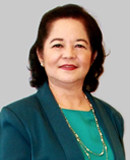 Dr. Marieta Bañez SUMAGAYSAY
Dr. Marieta Bañez SUMAGAYSAY
University of the Philippines Visayas
UPV Tacloban College
6500 Tacloban City
Leyte, PHILIPPINES
Dr. Marieta Bañez Sumagaysay holds a doctoral degree in Social Science Research, with a dissertation on the labor force participation of married women in various economic sectors. For her bachelor’s degree, she finished BA Social Sciences in Economics from the University of the Philippines Visayas Tacloban College (UPVTC), graduating magna cum laude. She has two master’s degrees: MM in Business Management from the same college, and MA Economics from the School of Economics, University of the Philippines. She is a full Professor in Economics at UPVTC where she also served as College Dean for two terms, and as Director of the Leyte-Samar Heritage Center. At present, she is on a secondment status as Executive Director of the National Research Council of the Philippines (NRCP) of the Department of Science and Technology. Dr. Sumagaysay’s researches, article publications in journals and book chapters, paper/poster presentations in national and international conferences revolve around women in fisheries and aquaculture, gender-responsive value chains, child labor, local economic development planning, and studies related to socio-economic impacts/issues on climate change and disaster risk management. Her advocacy for women’s economic empowerment is highlighted by her being a certified National Gender and Development (GAD) Resource Pool member of the Philippine Commission on Women.
Her latest researches deal on environment-induced migration patterns in Haiyan-affected fishing communities in the Philippines, on the adaptive capacities of women-fishers’ households to climate change and variability, as well as on the delivery of social services to Haiyan survivors in selected communities. Dr. Sumagaysay’s expertise as facilitator/moderator in workshops, as project consultant, as research manager, and as resource person in conferences/trainings has enabled her to forge linkages and collaborative initiatives with development organizations, the private sector, professional groups, and community associations. She is the President of the National Network on Women in Fisheries of the Philippines, and is a Board member of the Women’s Studies Association of the Philippines. She is a member of the Pi Gamma Mu, Alpha Chapter (Philippines), and an international honor society.
 Dr. Min JIANG
Dr. Min JIANG
Shanghai Ocean University
999 Huchenghuan Rd.
Shanghai, 201306
P.R.CHINA
Dr. Min Jiang was born in September 1972 and completed both her Bachelor and Master of Environmental Science from East China Normal University. Then she obtained her PhD in Environmental Science & Engineering from Tongji University in 2005. She is currently the director of editorial office of Shanghai Ocean University and before that she used to be the Associate Dean of College of Fisheries and Life Science, SHOU. She is also the Executive director of Shanghai Magazine Association, an executive council member of Society of Shanghai University Journals, a council member of Shanghai Society for Scientific & Technical.
Periodicals, a member of Chinese Society of Fisheries and a member of Chinese Society for Oceanography, She is currently a professor and has led a number of research projects focusing on the interdisciplinary of Environmental Science and Aquaculture, Environmental Chemistry, Environmental Toxicology, Water Quality Monitoring and Control. To date, around 70 papers have been published and 29 Master students have successfully graduated under her supervision.
 Assoc. Prof. Dr. Han-Ching WANG
Assoc. Prof. Dr. Han-Ching WANG
No. 1, University Road
Taiwan 701
TAIWAN
From the first year of her Master’s degree in 2000 to completion of her PhD at National Taiwan University in early 2007, Dr. Wang’s research work has emphasized the use of proteomics and structural biology to study pathogenesis of a large, novel, dsDNA shrimp virus called white spot syndrome virus (WSSV). In early 2007, she transferred to the Tokyo University of Marine Science and Technology, where she switched her research field to shrimp immunity, using animal models and transcriptomics. In 2008, she became the youngest member of the faculty at National Cheng Kung University in Taiwan and established her own lab, the Lab of Translational Aquabiology (TLAB). Dr. Wang’s motivation is that whereas shrimp aquaculture is one of the most important economic activities in East Asia, it is severely threatened by pathogenic diseases, including those caused by viruses (e.g. white spot disease; WSD) and bacteria, in particular, acute hepatopancreatic necrosis disease (AHPND). She uses an integrated systems-biology approach including metabolomics and lipodomics to study pathogenesis of WSD and AHPND. She also discovered Down syndrome cell adhesion molecule (Dscam), the first antibody-like molecule identified in shrimp, and she has a goal of using a science-based approach to optimize potential shrimp vaccine strategies. She believes that this is very important, both for science and also for the shrimp aquaculture industry.
Currently, Dr. Wang is an editorial broad member of two well-regarded scientific journals, Developmental and Comparative Immunology (DCI) and Fish and Shellfish Immunology. She also serves as one of 5 board members of International Society of Fish and Shellfish Immunology. She is chair of the Nimaviridae Study Group of International Committee for the Taxonomy of Viruses (ICTV) since 2012 and an observer on the Executive Committee of the Fish Health Section (FHS), Asian Fisheries Society (AFS) Executive Committee since 2014.
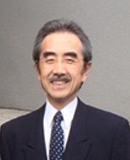 Dr. Shunsuke KOSHIO
Dr. Shunsuke KOSHIO
Faculty of Fisheries,
Kagoshima University, JAPAN.
Dr. Shunsuke Koshio obtained his PhD from Dalhousie University, Halifax, Canada in 1985. The title of his PhD thesis was "The effects of eyestalk ablation, diets, and environmental factors on growth, survival and energy utilization of juvenile Homarus americanus, as applied to aquaculture", while his MSc was given from the Tokyo University of Fisheries (presently, Tokyo University of Marine Science and Technology), Japan. The title of MSc thesis was "The seedling production of Macrobrachium spp., with an emphasis on larval response to salinity". After completing the post-doctoral work at Dalhousie University in 1986, Dr. Koshio was appointed as an assistant professor at the Faculty of Fisheries in Kagoshima University, Japan in the same year. He was promoted to an associate professor in 1993, and then to a full professor in 2002 at the same affiliation. He served as a President Assistant (2003 to 2005, 2007 to 2008) for supporting general business in Kagoshima University.
He has been appointed as a Dean of the Faculty of Fisheries, Kagoshima University since April,2016.He was a visiting scientist at the Department of Food Science, Technical University of Nova Scotia, Canada in 1991 and Department of Animal Science, University of California, Davis from 1999 to 2000. Current research interests are aquatic animal nutrition general, nutrition and stress, bioenergetics, and nutrition and health. He has published over 150 scientific papers in the field of aquatic animal nutrition. Professor Koshio is a member of the Japanese Society of Fisheries Sciences, World Aquaculture Society (WAS), Asian Fisheries Society, and the Japan Aquaculture Society. He served as a President of the Japan Chapter (1998 to 2002), a Board of Director (1999 to 2002), a member of the Affiliations, Elections, and Promotion and Membership Committees, a Vice President (2005 to 2006) of WAS. He has also served as a chairman of Symposium Committee from 2010 to 2012 and as a head of Kyushu branch from 2010 to 2012 for the Japanese Society of Fisheries Sciences.
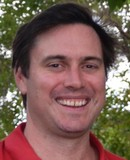 Associate Professor Nicholas PAUL
Associate Professor Nicholas PAUL
University of the Sunshine Coast,
Maroochydore, Queensland
AUSTRALIA
Dr Paul is an Associate Professor in Aquaculture in the Faculty of Science, Health, Education and Engineering at the University of the Sunshine Coast in Queensland. His main research areas include: Seaweed production and new product development; Seaweed as functional food and nutraceuticals; Environmental roles of seaweed farming; Bioremediation of wastewater using algae; Waste-to-resource technologies. He received his PhD from the University of New South Wales, Australia in 2006 after which he worked as a Lecturer in Aquaculture and research academic at James Cook University in tropical Australia. He was a founding Director of MACRO – the Centre for Macroalgal Resources and Biotechnology, in which he lead a cross-disciplinary team of scientists that pioneered research on macroalgae for new product developments, such as human food, animal feeds and renewable fuel, based upon a platform of environmentally sustainable production that simultaneously treats wastewater. In 2015, he was winner of the United Nations Association of Australia World Environment Day Awards for 'Excellence in Sustainable Water Management' based on this work.
In early 2017 Dr Paul joined the University of the Sunshine Coast, continuing research and development focused on creating high-value seaweed products, including functional food and nutraceuticals for human health and applications in animal feed and health for agriculture. Dr Paul is project leader on ACIAR-funded projects 'Improving seaweed production and processing opportunities in Indonesia' and 'Diversification of seaweed industries in Pacific Island countries'. His work aims to foster industry partnerships and develop new species, culture techniques and bio-products for farmed seaweed in the Indo-Pacific region. Dr Paul has published >80 papers in peer-reviewed journals and is the author of four patents in the broad area of aquatic technology. His current role at USC combines research expertise with a strong focus on industry partnerships, innovation, intellectual property development and commercialisation.

